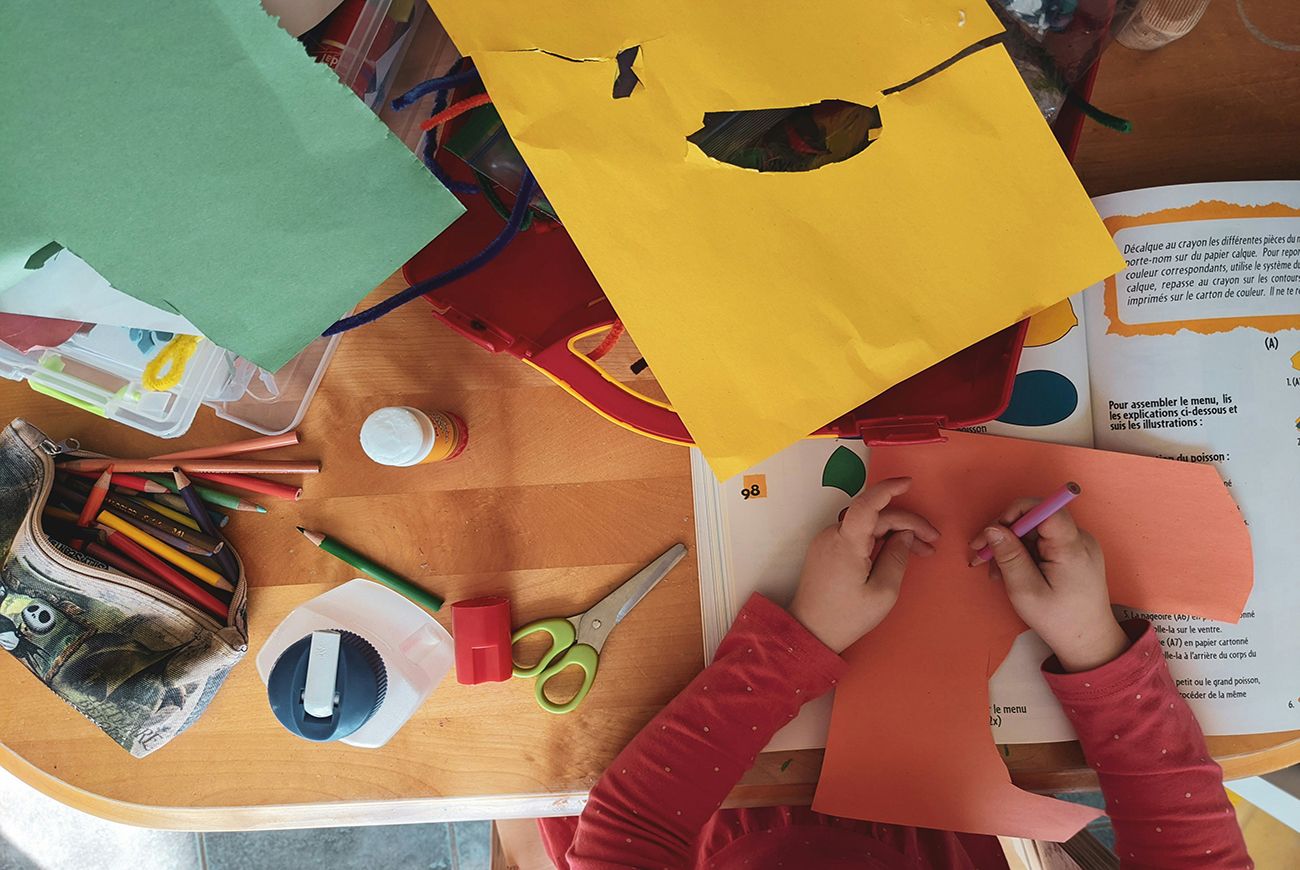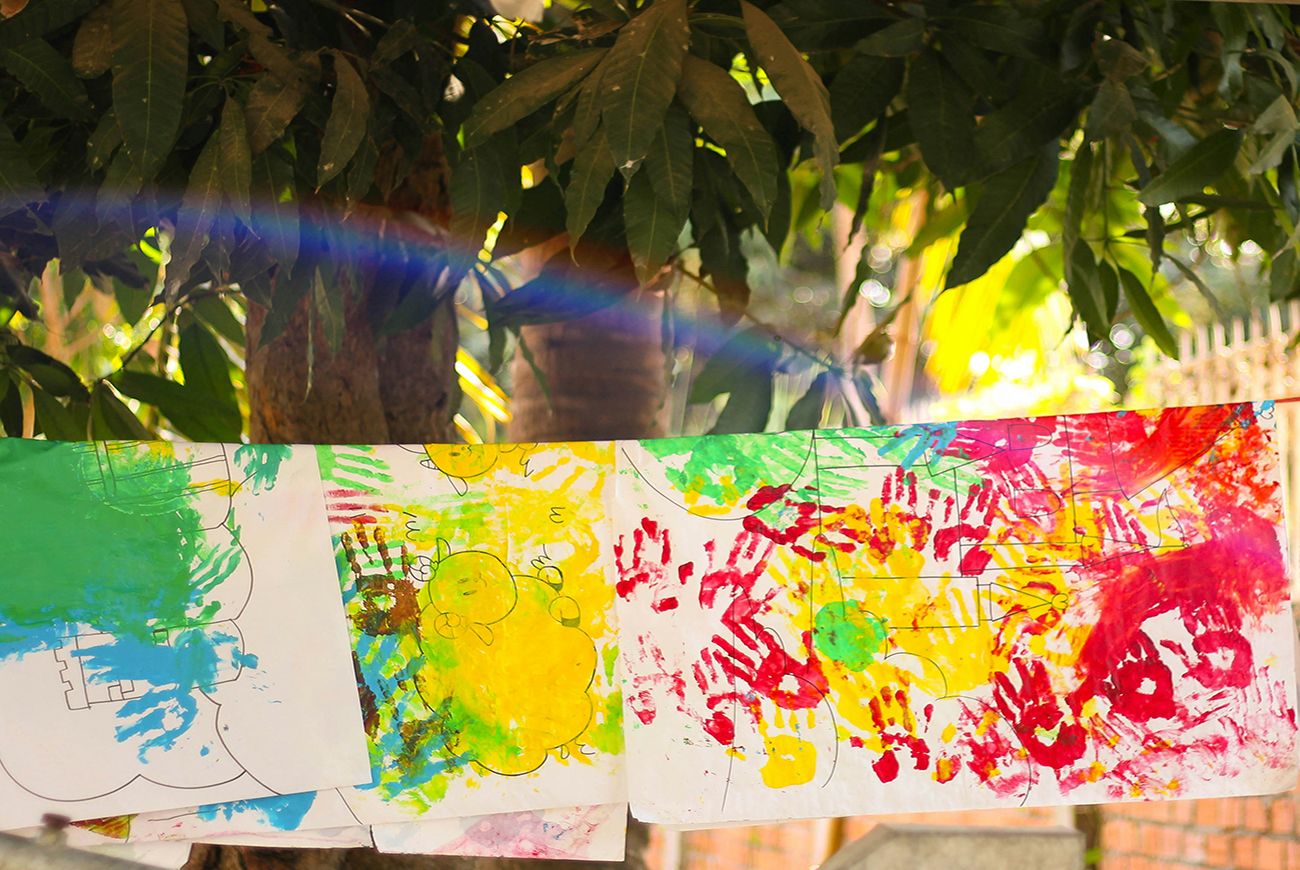Cultivating Creativity in Children: Developmental Benefits
5 min read
Last Modified 30 May 2025 First Added 25 April 2024

Children are naturally creative beings that have a need to express themselves. They have a rich and varied imagination that can take them from everyday life to a world full of excitement, to create friendships from thin air and adventures from their living rooms. It helps them to create masterpieces, explore the galaxy or take over the world.
To develop creativity, children must be given the opportunity to freely explore and express their ideas. Whether through art, movement, building, designing, acting or performing, the ways that you will see them express themselves as they grow are endless. Creativity supports so many skills and functions that are essential in preparing them for the future, and encouraging them to stretch their imaginations and explore their creative skills is wonderful for both their overall development and making joyful memories together.
Find out below some of the ways that developing creativity supports your child’s overall social, academic, physical and cognitive development.

Creative activity sparks joy and gives them freedom to explore, this helps to grow positive self-esteem as they fulfil their goals, whether it’s finishing a painting, creating music or inventing a dance. Positive reactions to their creative expression encourage them to explore it further, so give praise, display art around the house and celebrate your child’s growing personality whenever you can.
As your child grows and begins to play creatively with others, collaborative art projects can fuel their imaginations and support all areas of development including social skills. Learning to deal with diverse opinions, compromising, talking about and sharing ideas as well as working towards a common goal all give your child practise in how to perform positive social interactions, experiences they can draw on when they go to school and social events.
Learning how to get the best sounds out of a musical instrument, drawing an intricate picture of their favourite animal or building a turreted castle from blocks all require focus to get to the final goal. If they enjoy a creative pursuit, they’ll spend more time on it, and the achievement from creating something that is well received will reinforce their ability to concentrate for longer periods of time as their brains grow.
Creative activities are ideal to help develop fine motor skills, from gripping giant playground chalks to moulding objects from dough, the correlation between what they want to create and how it manifests in the real world also helps them further develop more precise hand-eye coordination. You can read more about developing fine motor skills and hand-eye coordination in our other learning skills blogs.

When faced with a challenge, we want our little ones to be able to think outside of the box and find a suitable solution. We want them to be able to solve problems independently, use lateral thinking and have the confidence to see their own ideas through. Fostering creativity means helping them develop the skills to do this, whether the challenge is to make a handmade card or gift, create something from clay or other mediums, or show someone what they are imagining or feeling through movement, crafts or music.
Giving your child creative freedom means they get to practise expressing both positive and negative feelings, creating connections in the brain between how they act and how they and others feel. Empathy is grown from putting themselves in other’s shoes, through acting out their favourite stories or invented ones. Reactions to their ideas and self-expression will form part of their opinion of themselves.
Fully experiencing freedom of creativity during childhood prepares your little ones for a bright future. Confidence in their creative thinking when faced with challenges will help them find innovative solutions, and being able to adapt and come up with new ways of doing things will only benefit them when it comes to navigating the wider world. Expressing creativity strengthens their understanding of their environment and how they impact it, improves information retention and supports their ability to visualise concepts and potential outcomes, not just in artistic pursuits, but in maths, technology and science too.
It comes naturally to children to want to take part in creative activities. The joy of creating something is appealing to even the youngest of souls. You can support this by offering lots of different creative activities, and you don’t need to spend much money either. There’s lots of DIY creative activities available online. Create a stash of scrap paper, wallpaper samples, magazines, cellophane sweet wrappers, Christmas cards, fabric cut offs and trinkets (buttons, sequins, bows…) Collect egg boxes, tubes and interesting shaped packaging for junk modelling and all you’ll need to add is a child-friendly glue. If your little one prefers a bit more guidance in their creative play, try a craft kit that allows them to create a one-of-a kind piece.
12 months - 4 years
View DetailsCreativity is a fundamental aspect of your little one’s development, equipping them with the critical thinking, problem-solving skills, and resilience needed in their ever-changing world. By valuing, praising and nurturing creativity, you are giving your child the tools to innovate, adapt, and thrive, helping them to grow into well-rounded, capable individuals ready to face future challenges with confidence.
Read our disclaimers here.